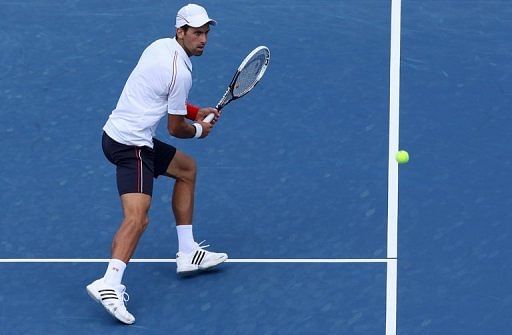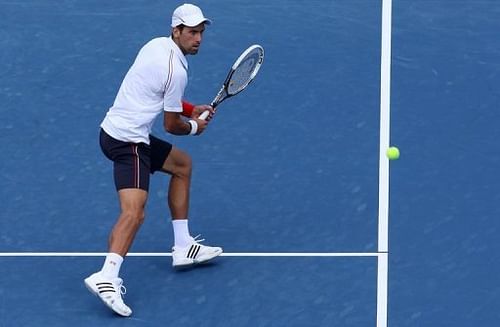
Novak Djokovic: Being the ultimate sportsman

The Joker is an intriguing character. He has flair for the dramatics, an élan for causing commotion and a style that’s unmatched by many. Different shades, multiple facets – understanding the Joker is never so simple. In the most perfect comic-book world, the character known as Joker would have probably been a contender for being the perfect anti-hero.
Tennis’s D-joker, on the other hand, defines all the above qualities of the comic caper whilst adding his own singular quintessence to the mix. But where the comic persona reflects the antithesis of societal positivity, the Serbian D-joker doesn’t in any way symbolise evil negativity – both on and off the court. But this avowal of positivity doesn’t mean that Nole is always well-liked, with his comments always understood and taken in the right manner by everyone.
Liking or disliking a person is always relative and depends not just on the person, but also on the circumstances influencing the person’s behaviour; case in point – Nole. His impressions have always had a double-edged effect with some utterly infatuated with his antics and a few others completely irritated by his constant leg-pulling of his peers; his blunt statements have often attracted ire for their seeming indifference and casualness. Maybe that’s why he’s known as the Djoker – a double entendre to remind one that he’s a prankster and also one, whose pranks may not always be accepted by all.
But one aspect of Nole that never goes questioned is his ability to be self-assured and poised even while facing defeat. Not many players have the ability to smile broadly at their mistakes, especially when they are at their lowest ebb during a match. Between frustration and annoyance, not many have the capability to brace themselves for a fall. And if at all players do fall, not many possess the calmness to shrug it off and cross over to the other end, just to give the opponent his congratulatory due. Nole does all of this, time after time, over and over again. He’s one of those players who don’t hesitate to show their appreciation when the opponent hits a great passing shot; he’s the kind of player who’ll put aside his loss and be the first to come and applaud the opponent’s victory. But more than all of this, he’s one of those players whose sportsmanship never appears to be obligatory or duty-bound but reflects his deep-set respect and regard – not just for the sport but also for the sportsman standing before him on that day.
And it’s probably because of this simple demonstration of appreciation and regard, that there have emerged many converts to the Djoker bandwagon alongside those who were a part of it right from the onset of his career. Philosophies, though encompassing, are not without exceptions. If sports and tennis be taken as a philosophy of life, a doctrine worth following, then Nole would definitely be an exception. His presence accounts for so much and brings an atmosphere of friendliness existing amongst the toughest of competitors. Where in the past, rivalries between players transcended beyond the playing domain, often spilling onto socio-professional lives, Nole’s overwhelming generosity of spirit brings about a healthier change between the past and the present. A present where professional rivalry doesn’t extend to the outside of tennis courts, just as it doesn’t extend beyond that one day and over that particular time when the players are actually contending to reach the finish.
Perfection isn’t attained by everyone, and the Djoker by no means is perfect. But where he has a long way to go in terms of observing, learning and developing as an even-more formidable opponent, his legacy of being one of the most perfect sportsmen is the ultimate guide for observers wanting to follow and honour the quality in their own personal and professional lives.